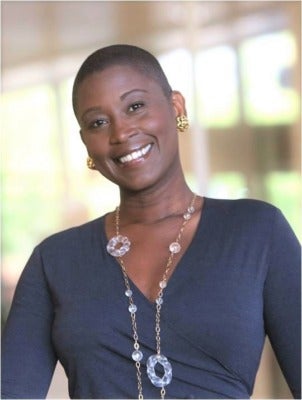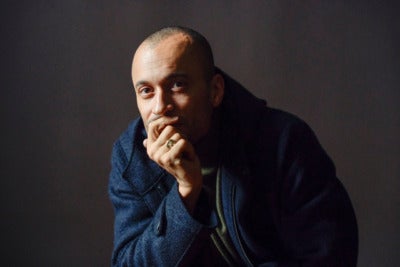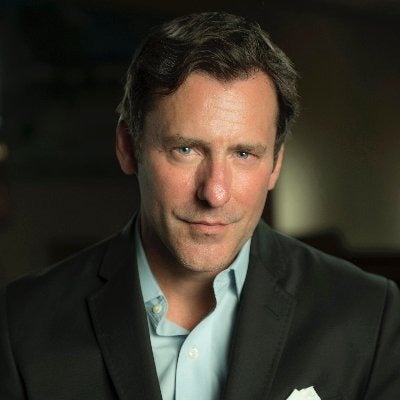Socrates Program: 2023 Winter Seminars
Socrates Winter Seminars
The Socrates Program is excited to host our annual Winter Seminars this February 17th-20th in Aspen, CO. Seminar tuition is $2,500. Limited scholarships are available by application. If you would like to apply for a scholarship, please do so here. We will be hosting three seminars with new and veteran moderators.
Do Reproductive Rights Really Matter? SOLD OUT
This seminar addresses the intersections of legal history, constitutional law, and reproductive rights to consider the arc of reproductive freedom in the United States, starting centuries before Roe v. Wade (1973) and the recent Supreme Court decision Dobbs v. Jackson Women’s Health Organization (2022), which overturned the right to an abortion without exceptions for cases of rape or incest. It considers the role of American slavery in establishing the early boundaries for reproductive freedom and equality, building from there to examine coverture—the legal theory that married women are property of their husbands. The seminar expands to bridge into the 20th century and emerging democratic values that include women, examining legal precedents related to sterilization, contraception, and abortion. The seminar considers the roles of courts and legislatures in striking down old laws that lasted into the 20th century marking women as appendages of their husbands and unable to govern their bodies to the current patchwork of trigger laws and new legislation that are currently being challenged in state and federal courts.
Participants will learn about the role and value of precedent or stare decisis in judicial decision-making. The seminar will consider the legal landscape post Dobbs, including whether and how other constitutional rights might be implicated, such as free speech rights, the right to travel, the right to contraception, LGBTQ equality, and interracial marriage. Join us to ask the hard questions about how the United States has regulated reproductive freedom and what paths can be forged in and outside courts.
 Dr. Michele Goodwin is the author of the award-winning book, Policing The Womb: Invisible Women and the Criminalization of Motherhood. She is an acclaimed bioethicist, constitutional law scholar, and prolific author. She is the Abraham Pinanski Visiting Professor of Law at Harvard Law School and Chancellor’s Professor at the University of California, Irvine. She has testified before Congress on matters of health and reproductive rights. She is the author of six books and over one hundred law review articles, commentaries, and essays, appearing in the Harvard Law Review, Yale Law Journal, Cornell Law Review, Northwestern Law Review, and Georgetown Law Journal among others. Her commentaries appear in the New York Times, L.A. Times, The Atlantic, The Nation, Forbes, and the Washington Post, among others. She is a frequent guest on MSNBC, and is the Executive Producer of the popular podcast, On The Issues with Michele Goodwin. She is the Executive Producer of Ms. Studios. She is an elected member of the American Law Institute.
Dr. Michele Goodwin is the author of the award-winning book, Policing The Womb: Invisible Women and the Criminalization of Motherhood. She is an acclaimed bioethicist, constitutional law scholar, and prolific author. She is the Abraham Pinanski Visiting Professor of Law at Harvard Law School and Chancellor’s Professor at the University of California, Irvine. She has testified before Congress on matters of health and reproductive rights. She is the author of six books and over one hundred law review articles, commentaries, and essays, appearing in the Harvard Law Review, Yale Law Journal, Cornell Law Review, Northwestern Law Review, and Georgetown Law Journal among others. Her commentaries appear in the New York Times, L.A. Times, The Atlantic, The Nation, Forbes, and the Washington Post, among others. She is a frequent guest on MSNBC, and is the Executive Producer of the popular podcast, On The Issues with Michele Goodwin. She is the Executive Producer of Ms. Studios. She is an elected member of the American Law Institute.
Can We Imagine a Future Beyond Race? SOLD OUT
In 2012, the conceptual artist and analytic philosopher Adrian Piper famously “retired from being black.” This course suspends disbelief and draws inspiration from her provocative gesture, seeking to probe the possibilities and limitations it may reveal. At a moment of greater understanding of genetics and genealogy, as well as intensified collective participation in what the late essayist Stanley Crouch termed “the all-American Skin Game,” it feels even more dangerous and necessary today than even 10 years ago to cast a skeptical eye on the racial construct and to attempt to imagine a universally humanist world beyond it.
“Racism is real and anti-racism is both admirable and necessary, but extant racism isn’t what principally produces our inequality and anti-racism won’t eliminate it,” Adolph Reed and Walter Benn Michaels argue. “And because racism is not the principal source of inequality today, anti-racism functions more as a misdirection that justifies inequality than a strategy for eliminating it.” We will take seriously the central proposition that “racecraft,” as Barbara and Karen Fields have famously termed the social customs and habits of language and thought that reproduce racial difference, obscures more than it elucidates about the human condition: racism—and racialized exploitation—create race, and not the other way around. We will also take seriously Ta-Nehisi Coates’s argument that a great though measurable material harm was done to “those on whose labor and exclusion the country was built”—that is, men and women of all manner of genetic and ancestral makeup who have been deemed “black.”
The course will engage a multitude of perspectives, including my own, which, as the son of a white mother and black father in America, began with blind adherence to the so-called “one-drop rule” but has grown considerably more complicated in light of more recent experiences as the “black” father of “white” children in Paris. It aims to challenge students’ thinking about the various racialized identities we inhabit/inherit and will concern itself with two related questions: to what extent do we create ourselves, and to what extent are our identities passively received? We will read and discuss the work of thinkers and writers who subvert our understanding of racial categorization and offer pathways to a freer, racially transcendent future.
 Moderator: Thomas Chatterton Williams, is the author of Losing My Cool and Self-Portrait in Black and White. He is a contributing writer at The Atlantic, a 2022 Guggenheim fellow, a visiting fellow at AEI, and a visiting professor of the humanities and senior fellow at the Hannah Arendt Center at Bard College. His work has appeared in The New York Times Magazine, Harper’s, The New Yorker, and many other places, and has been collected in The Best American Essays and The Best American Travel Writing. He is a 2019 New America national fellow and a recipient of the Berlin Prize from the American Academy in Berlin. His next book, Nothing Was the Same: The Pandemic Summer of George Floyd and the Shift in Western Consciousness, will be published by Knopf. He lives in Paris and New York.
Moderator: Thomas Chatterton Williams, is the author of Losing My Cool and Self-Portrait in Black and White. He is a contributing writer at The Atlantic, a 2022 Guggenheim fellow, a visiting fellow at AEI, and a visiting professor of the humanities and senior fellow at the Hannah Arendt Center at Bard College. His work has appeared in The New York Times Magazine, Harper’s, The New Yorker, and many other places, and has been collected in The Best American Essays and The Best American Travel Writing. He is a 2019 New America national fellow and a recipient of the Berlin Prize from the American Academy in Berlin. His next book, Nothing Was the Same: The Pandemic Summer of George Floyd and the Shift in Western Consciousness, will be published by Knopf. He lives in Paris and New York.
The American Presidency Under Fire: Lessons from Lyndon B. Johnson SOLD OUT
The late sixties marked a time in America of great social and cultural upheaval. With the post-war order being questioned and the country’s internal politics reaching a level of contention more vitriolic and chaotic than in living memory, Lyndon B. Johnson brought to the executive office unique elected experience having served as a US Representative and US Senator before becoming President. Taking the helm of a country reeling from the assassination of JFK, President Johnson embarked on an agenda of expanding civil rights, access to healthcare, urban and rural development, public services, and education and the arts. The successes and failures of his presidency are debated to this day and his legacy is rooted in the political tensions we are seeing in our current political moment. In the seminar we will explore whether Johnson’s reforms serve as an example today for US leadership. What mistakes can we learn from? Do personal foibles undermine the achievements of a leader? To what lengths should a leader go to achieve her ends? Do the worthiness of the ends justify the means?
 Moderator: Mark K. Updegrove is a presidential historian and the author of five books on the presidency. He currently serves as the president and CEO of the LBJ Foundation and the presidential historian for ABC News. Earlier in his career, he was the director of the LBJ Presidential Library and publisher of Newsweek. He has interviewed seven US presidents.
Moderator: Mark K. Updegrove is a presidential historian and the author of five books on the presidency. He currently serves as the president and CEO of the LBJ Foundation and the presidential historian for ABC News. Earlier in his career, he was the director of the LBJ Presidential Library and publisher of Newsweek. He has interviewed seven US presidents.
Frequently Asked Questions:
What is a Socrates seminar?
The Socrates Seminar is a roundtable discussion / collaborative weekend-long event for participants from different fields. Participants are asked to contribute their understanding of and reactions to carefully selected readings, with the guidance of moderators who are experts in their sector. This is not a panel discussion, nor is it a tutorial where the experts share their knowledge. The roundtable discussion format is a multilateral debate moderated by the moderator(s). The seminars are held on Aspen Meadows Resort campus.
How many seminars can I participate in?
You will register for one seminar of up to 24 participants for the entire weekend. Meals and programming will be enjoyed with the entire group which includes participants from all three concurrent seminars.
What if my preferred seminar is sold out?
Unfortunately, each seminar is capped at a certain amount and we might not be able to accommodate your request. We urge you to apply as soon as possible but if you would like to discuss the seminars further, please reach out the Socrates Team directly via email and one of our team members will assist you.
What does tuition cover?
Tuition includes seminar attendance and materials and meals during the program, which begins at 6pm on Friday evening and ends at 12 pm on Monday.
Are scholarships available?
Scholarships for tuition assistance are available through the Socrates Program. The application can be found here. Please note: Scholarships are awarded on a rolling bases. We encourage you to apply as soon as possible.
Can I bring a guest?
If you would like to bring a guest to join you for meals, you are welcome to for $500.00. These both can be purchased as add-ons when you register.
What transportation will be provided at the event?
If you are a guest of the Aspen Meadows Resort, they will take care of your arrival and departure transportation to and from the airport. If you are staying at an alternative location, taxis and a free local bus are available.
The Aspen Meadows offers a complimentary shuttle that runs into Aspen every 30 minutes.
What is the timing of the seminars and programming for the weekend?
You can view the tentative agenda below, which has the set times for the seminars and meals (the event locations and optional activities will be added closer to the event). To join for the whole experience, you will want to arrive in Aspen by 6pm on Friday and depart after 12pm on Monday.
In the morning until 1 pm daily, you are welcome to explore and engage with everything Aspen has to offer. We have partnered with Blazing Adventures to offer some special trips to Socrates participants.
What is the dress codes for the seminar?
Although we do not require a specific dress code, most people dress business casual and comfortable in the seminar rooms and bring something a bit more dressy for the evenings. We recommend that you dress for warmth and comfort in both the Winter and Summer. Please wear sturdy shoes that will allow you to walk through snow.
Health and Safety Guidelines for In Person Events
The Aspen Institute is committed to creating a safe seminar experience for all participants. Please see our COVID-19 safety guidelines here.
These guidelines will be regularly updated to meet the latest health and safety guidance of the CDC and local authorities. If you anticipate any issues or have any concerns, please contact us at socrates@aspeninstitute.org.
